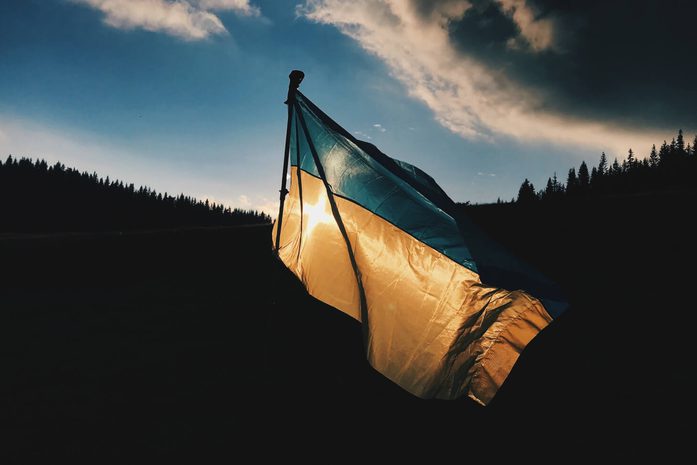
Thomas Behné Ramsnes
Partner
Stavanger
Newsletter
Published:
The main focus of the EU's 11th package of sanctions against Russia is on combating circumvention of pre-existing trade sanctions. Since the Russian war of aggression in Ukraine, Russia and Russian persons have become increasingly well adapted to restrictions imposed by the EU and other international legislators, with complex constellations to bypass the restrictions. As an example, the EU and other authorities have seen an increasing trend of transactions of restricted goods to certain third countries and companies associated with a risk of re-export to Russia. The price cap and import ban on Russian crude have been reported to be the object of circumvention, limiting the effect of these restrictions on the Russian economy. These and other means to circumvent the EU restrictions are targeted by the new regulations.
In addition, several adjustments are made to the various lists of goods and technologies comprised by the restrictions. Companies doing business with a Russian nexus, including e.g., importers from and exporters to Russia, should revisit these lists. An important adjustment is made to the iron and steel restrictions, whereunder importers must from now on be able to document the country of origin for iron and steel products that have been processed in a third country.
The new rules entered into force in the EU on 24 June 2023. Norway has so far adopted sanctions in line with the EU, typically within a few weeks after their implementation in the EU, but the Norwegian authorities have yet to make any press release regarding the 11th
sanctions package.
Restricted goods and technologies have been seen to be exported via third countries to Russia/ Russian end users. Such exports undermine and circumvent the effectiveness of sanctions imposed by the EU and others. To combat this, the main strategy of the EU and G7 countries has been to engage in diplomatic dialogue with relevant third countries to get them to cooperate. This remains the main strategy, and the latest EU sanctions package emphasizes the need to strengthen such cooperation, and to provide third countries with relevant technical assistance in this respect.
However, the 11th sanctions package states that - where efforts to achieve bilateral or multilateral cooperation fails - further targeted and proportionate actions should be taken to deprive Russia of the resources allowing it to pursue the war against Ukraine. Such actions include listing persons and entities under the blocking list or the list of entities to which export and sale of dual-use and advanced technology items are prohibited, and the latest package includes the listing of entities in Armenia, China, Iran, Syria, United Arab Emirates, and Uzbekistan. An earlier list of Chinese entities proposed for such barring has been the topic of much discussion, considering the EU's complex relationship with China, and Russian dependency on Chinese support. According to several media reports, the EU originally planned to list eight Chinese companies but ended up listing only three following diplomatic talks with China.
Furthermore, the 11th sanctions package also includes a new anti-circumvention tool whereby the EU may prohibit the sale, supply, transfer or export of dual-use goods and technology, or goods and technology that might contribute to the enhancement of Russia’s military, technological or industrial capacities or to the development of Russia’s defence and security sector to countries that are associated with a high risk of being used for circumvention, such as Armenia, Kazakhstan, China, Turkey and others. This tool is however reserved to scenarios where other actions prove inadequate, and the EU refers to them as "exceptional, last-resort measures". As per now, this is simply a mechanism with an empty annex, but it does provide the EU with an effective means to swiftly impose restrictions on the assumed circumvention vehicle countries if they continue to "systematically and persistently" fail to prevent export to Russia/Russian persons of goods from the EU even after outreach and assistance has been offered by the EU to the country in question.
In an attempt to overcome bypassing of the import ban and price cap on Russian crude, the EU has implemented further restrictions on access to EU ports for vessels that are suspected of bypassing the restrictions. Specifically, the new restrictions prevent such vessels from access to EU ports if they are suspected of participating in ship-to-ship transfers of Russian crude, and also for vessels that have failed to give 48 hours' notification of a ship-to-ship transfer within an EU country's economic zone or which have turned off the AIS tracking or are suspected to have interfered with the AIS tracking when transporting Russian crude. This is combined with an immediate information requirement for EU authorities that have denied access to its ports on this basis to other EU member states' authorities and the EU Commission.
Import of Russian crude through pipeline to Germany and Poland is no longer permitted. Japan's exception to the oil price cap for Sakhalin oil is however extended to 31 March 2024.
Restrictions on export, sale, supply and transfer of restricted goods and technologies have traditionally been combined with restrictions on technical assistance, brokering services, other services, financing and financial assistance. To avoid EU persons having their products produced in and exported to Russian persons from third countries, a separate prohibition is introduced in each of the relevant export related prohibitions, against the sale, licensing, and transfer in any other way of IPR and trade secrets. The prohibition further extends to the mere granting of rights to access or re-use any material or information covered by the IPR or constituting trade secrets, and to the provision, manufacture, maintenance, and use, of the restricted goods and technologies.
Until this addition, manufacture and export to Russia or Russian persons of restricted goods has been permitted by e.g., subsidiaries of EU companies incorporated outside the EU, to the extent the contract is not placed with the third country subsidiary in an effort to circumvent the sanctions. With the new restrictions, it is clear that goods and technology cannot be exported (directly or indirectly to Russia or Russian persons by a third country subsidiary of an EU company if the goods and technology in question are comprised by IPR or trade secrets of the EU company).
An obligation is imposed on EU members to inform the other EU members of any denied authorisation under several of the restrictions. Other EU member states must in turn review the list of denied authorisations, and if there is an "essentially identical" transaction on the list, then the matter must be discussed with the EU member state that initially denied the authorisation. If the other EU member nevertheless decides to grant the authorisation, it must inform the EU members and the EU Commission and provide all relevant information to explain its decision.
In addition to the above mentioned, the sanctions also include the following key restrictions:
The descriptions herein are general in nature, other restrictions than those mentioned exist, new items on the lists of restricted goods and technologies are implemented and exemptions are introduced. Further, the new regulations are accompanied by extensive recitals discussing various circumstances in relation to the new restrictions. This provides for a comprehensive and fragmented set of rules that is challenging to manoeuvre. Companies must continue to exercise caution with respect to business partners and ensure that sanctions compliance programmes, policies etc. are up to date. This also applies to non-EU companies, seeing that the G7 countries have generally acted in concert with respect to the sanctions, and considering the increasing impact sanctions are having on business in third-country jurisdictions.
Schjødt's corporate compliance team is experienced in all manners of sanctions and export control-related matters, including risk assessments and associated review of projects, business partners and M&A-activities that may entail an increased sanctions risk. We have an extensive global network consisting of leading compliance and white-collar crime specialists and can efficiently include relevant local knowledge in our assistance.
Please note that these updates do not constitute legal advice, nor do they provide an exhaustive description of all sanctions in place and the exemptions. Any person or entity involved, directly or indirectly, in business activities in any way directly or indirectly related to Russia, Belarus or Ukraine should carefully assess how they are affected by the sanctions. Schjødt's team is ready to assist in this regard.
